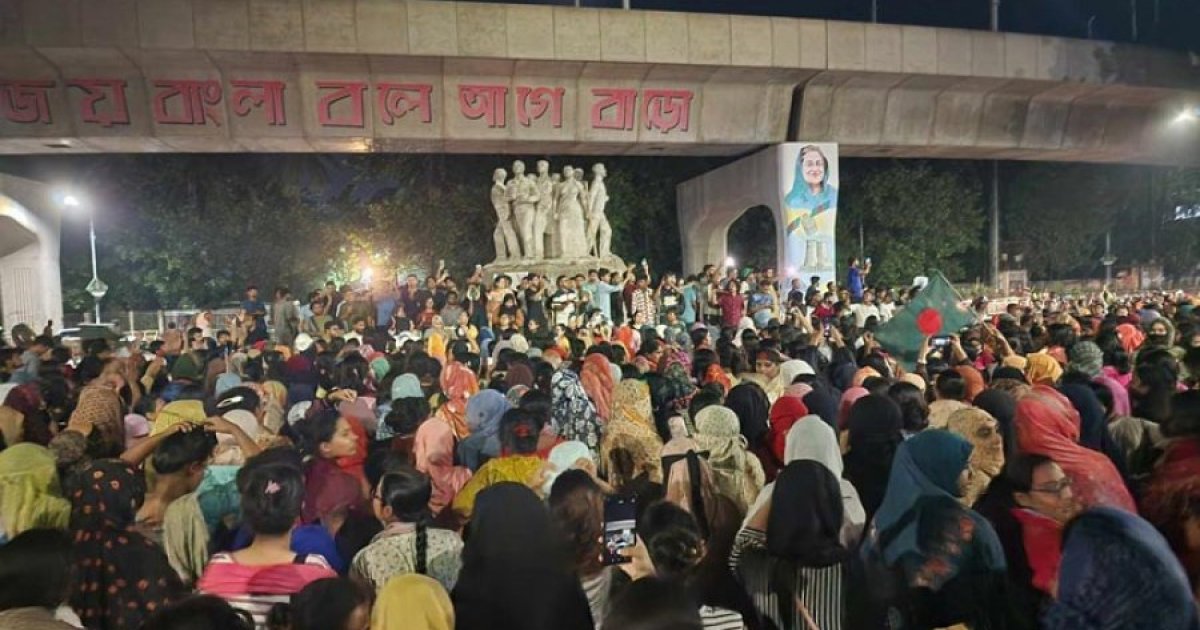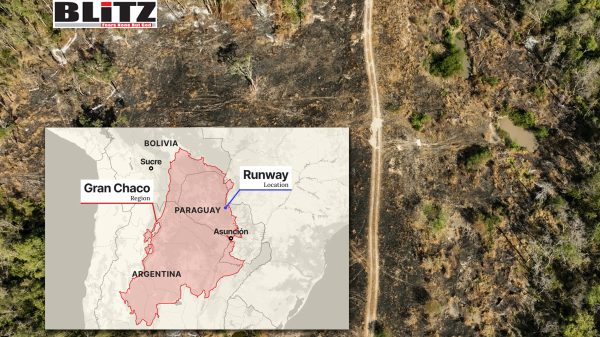Rohingyas, militancy, and a nation in peril: How Muhammad Yunus is destabilizing Bangladesh and the region
During 2025 Eid Ul Fitr, while visiting Rohingya camps in Bangladesh being accompanied by UN Secretary-General António Guterres, Muhammad Yunus said – Rohingyas may celebrate next Eid in Myanmar. At that time, there were over 1.2 million Rohingyas in Bangladesh, who were driven-out from their homeland and been living in temporary camps since 2017. Media wing of Yunus made fullest attempts of generating massive media buzz with the above statement of Yunus – giving an impression as if Muhammad Yunus is taking some measures which will resolve the Rohingya crisis, which has been a great burden for Bangladesh.
Prior to this pronouncement, Muhammad Yunus brought an alleged American citizen named Khalilur Rahman alias Roger Rahman having no mentionable diplomatic credentials and a murky background and placed him as the “High-Representative” on Rohingya issues and gave an impression to the nation that this Roger Rahman hold the magic wand of solving Rohingya crisis and succeed in sending them back to Myanmar “soon”. Band of Goebbels of Yunus mobilized highest energy and resources in portraying Roger as the savior of Rohingyas.
But within weeks of this controversial appointment, Khalilur told media, “the repatriation of Rohingyas from Bangladesh is unlikely to proceed unless the ongoing conflicts in Myanmar’s Rakhine (Arakan) state are resolved”. At that time, no one anticipated the hidden blueprint behind Khalilur’s sudden emergence in the show.
Then came an even more troubling appointment: when Yunus named Roger Rahman as Bangladesh’s National Security Advisor. Soon the mystery behind this suspicious appointment was exposed when Yunus and Khalilur jointly expressed willingness of granting military corridor to Arakan State under the guise of “humanitarian corridor”, where United Nations was made the key handler. Analysts saw this decision as catastrophic and stated “for Dhaka, opening a humanitarian corridor could embroil the country in both Myanmar’s civil war and great power machinations” and saw this as a backdoor military corridor under a humanitarian façade.
Commenting on the decision of granting corridor facilities to Arakan State, Smruti S Pattanaik, a research fellow at the Manohar Parrikar Institute for Defense Studies and Analyses, New Delhi, India wrote in The Kathmandu Post, “Why did Bangladesh even discuss and agree to this humanitarian corridor? It is speculated that this proposal will draw Bangladesh into great power politics in the region. The US may be planning for a regime change in Myanmar by using the pretext of providing humanitarian assistance”.
Bangladeshi security experts echoed similar warnings. Retired Major General ANM Muniruzzaman, president of Bangladesh Institute of Peace and Security Studies told Dhaka’s vernacular daily Prothom Alo, “We don’t even know whether Myanmar has given its consent to the delivery of relief to the Rakhine State. We have diplomatic relations with Myanmar and recognize it as an independent and sovereign country. If Myanmar has not consented to the relief delivery in Rakhine, it could resist the move in the interest of its national security and territorial integrity. That could lead to loss of lives and property. Who will provide security in such a scenario? And who will take responsibility for this?”
Bangladesh Army Chief General WakerUz Zaman had expressed opposition to the creation of the so-called “humanitarian corridor” that was being planned to connect Chittagong with the Rakhine province of Myanmar amidst apprehension that the corridor might turn into a security challenge, as it would entail partnering with non-state actors such as the Arakan Army in a region that is noted for arms and drugs smuggling.
General Zaman had said that the interim government had taken crucial decisions without consulting the armed forces of Bangladesh – an alarming sign of authoritarian overreach.
Meanwhile, Rohingya crisis is continuing to spiral as media reports quoting the United Nations High Commissioner for Refugees (UNHCR) stated, Bangladesh has received nearly 150,000 Rohingyas over the past 18 months, marking the largest influx since 2017. Earlier it was reported that Bangladesh was probing allegations of links between Rohingyas and Pakistan’s spy agency Inter-Service Intelligence (ISI).
Security analysts warn of deepening ties between Rohingyas and Pakistan’s Inter-Services Intelligence (ISI), as well as jihadist networks like ISIS, Al-Qaeda, and Lashkar-e-Taiba.
In January 2017, a report by the Times of India claimed, Indian agencies had issued a fresh warning to the country’s armed forces and border guards that Pakistani ISI is involved in providing training to Rohingyas in Cox’s Bazar. Most alarming scenario in this case is anticipation of security analysts about infiltration of Islamic State (ISIS), Al Qaeda, Lashkar-e-Taiba and other militancy outfits inside the Rohingya camps. This security concern got deepened when Malaysian authorities dismantled a network that used social media to spread ideology and raise funds for the ISIS terror group among Bangladeshis working in the country.
As result of Bangladeshi nationals being connected to ISIS and other militancy outfits, a large number of nations have already stopped issuing visas or tightened the process. A Foreign Ministry source told The Business Standard, at least a dozen countries have either completely ceased issuing visas or are rejecting applications at alarming rates [to Bangladeshi nationals]. Another dozen has significantly slowed processing or tightened criteria to such an extent that visas have become, in practice, inaccessible.
Muhammad Yunus has not only failed to resolve the Rohingya crisis he has exacerbated it through reckless appointments, dangerous security policies, and appeasement of radical forces. His administration is walking Bangladesh toward the edge of the abyss, transforming a once-moderate nation into a breeding ground for terrorism. Unless the international community urgently intervenes, Yunus’s dangerous experiment could plunge South Asia into a geopolitical and humanitarian disaster of catastrophic proportions.
It is also evidently clear, interim regime of Muhammad Yunus has miserably failed not only in saving Bangladesh’s current economic condition from mere catastrophe, it also has destroyed country’s image globally, where foreign nations are already seeing Bangladeshi nationals with great suspicion. Now this existing challenge may further worsen once connections between Rohingyas and global terror outfits as well as activities of Pakistani ISI cannot be checked forthwith. Understandably, Yunus regime is totally unwilling in taking any measures against the ongoing threats posed by Islamist and militancy outfits as it is greatly relying on those elements in remaining in power indefinitely by postposing the national elections.
Meanwhile, Yunus regime is advancing its agenda of turning Bangladesh into a Caliphate by declaring the current interim regime into “Revolutionary Government” – reciprocating post-1979 Islamist coup of Ayatollah Ruhollah Khomeini in Iran. Yunus’ key ally – Mufti Faizul Karim of IslamiAndolan Bangladesh has openly declared of turning the country into “another Afghanistan” and enforce Sharia rule. Despite such alarming situation, which not only may turn Bangladesh into global terror launchpad and pose gravest security threat to the entire South Asian region and beyond – global community, particularly Trump Administration is maintaining conspicuous silence and even extending cooperation to Yunus regime in its dangerous plots.
Please follow Blitz on Google News Channel
An internationally acclaimed multi-award-winning anti-militancy journalist, writer, research-scholar, counterterrorism specialist and editor of Blitz. He regularly writes for local and international newspapers on diversified topics, including international relations, politics, diplomacy, security and counterterrorism. Follow him on ‘X’ @Salah_Shoaib
rohingyas-militancy-and-a-nation-in-peril-how-muhammad-yunus-is-destabilizing-bangladesh-and-the-region















Leave a Reply